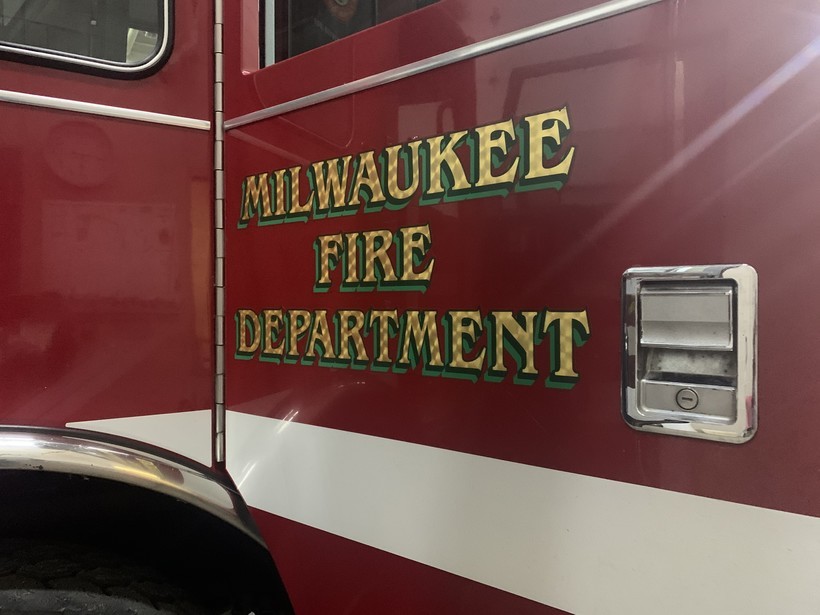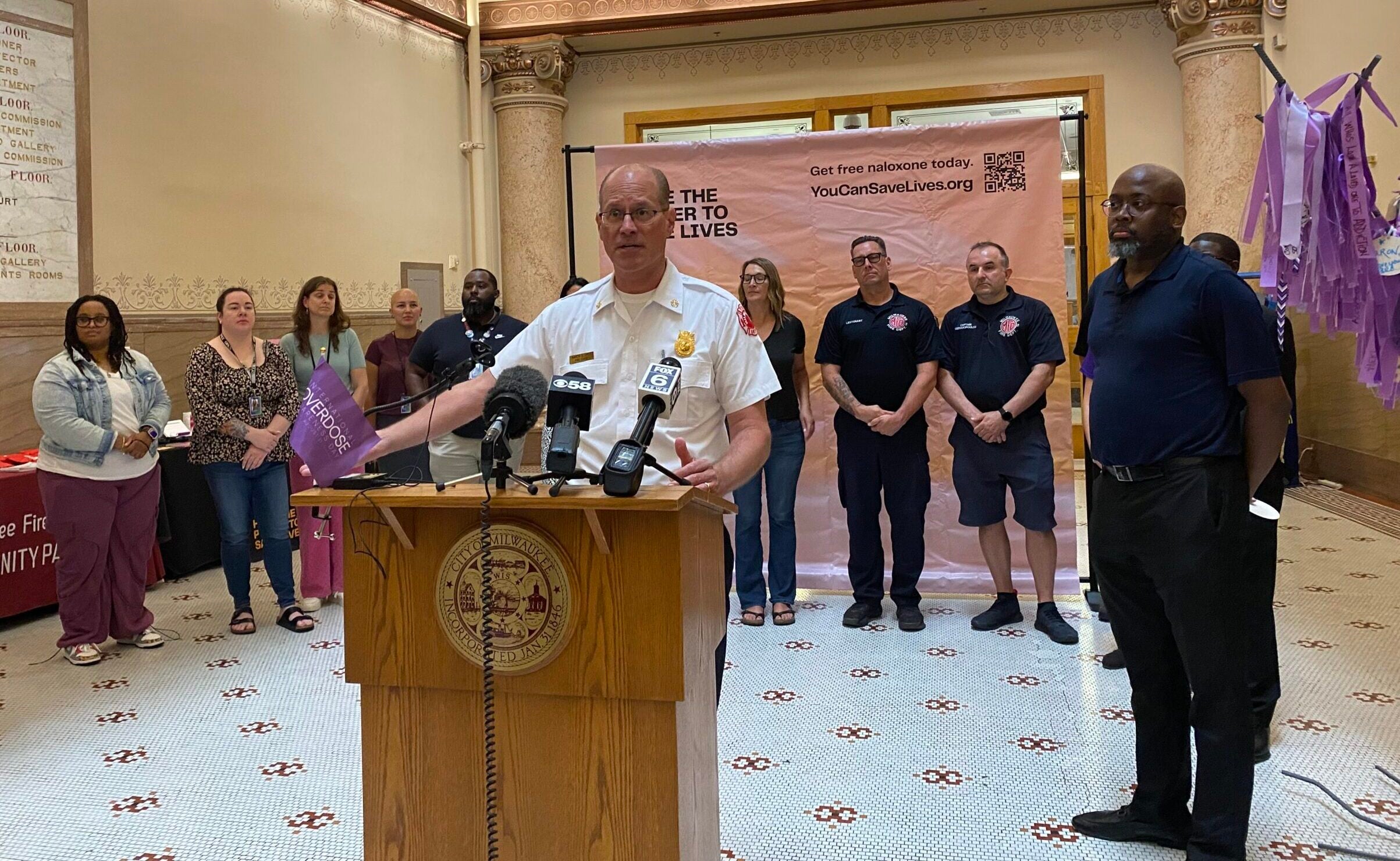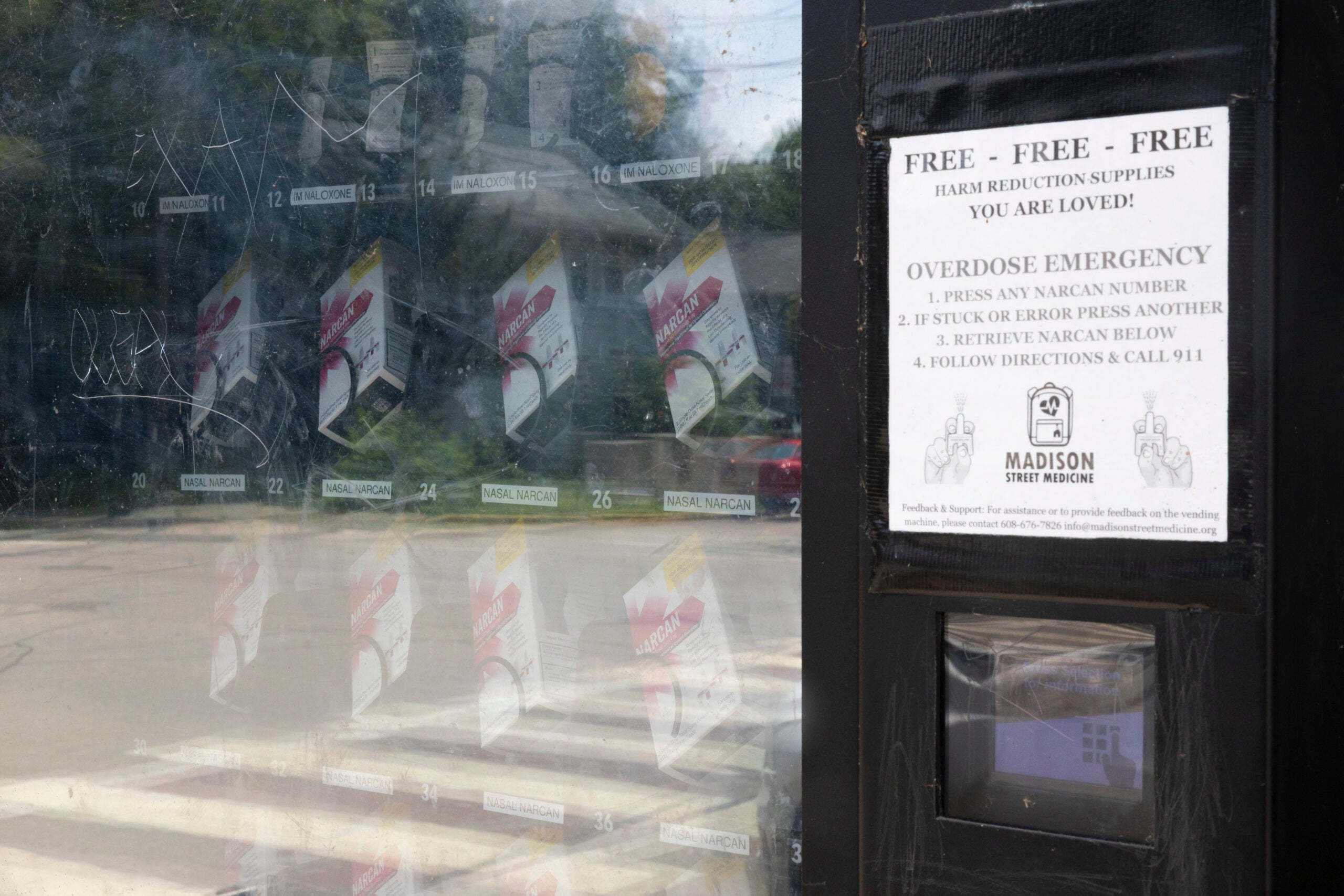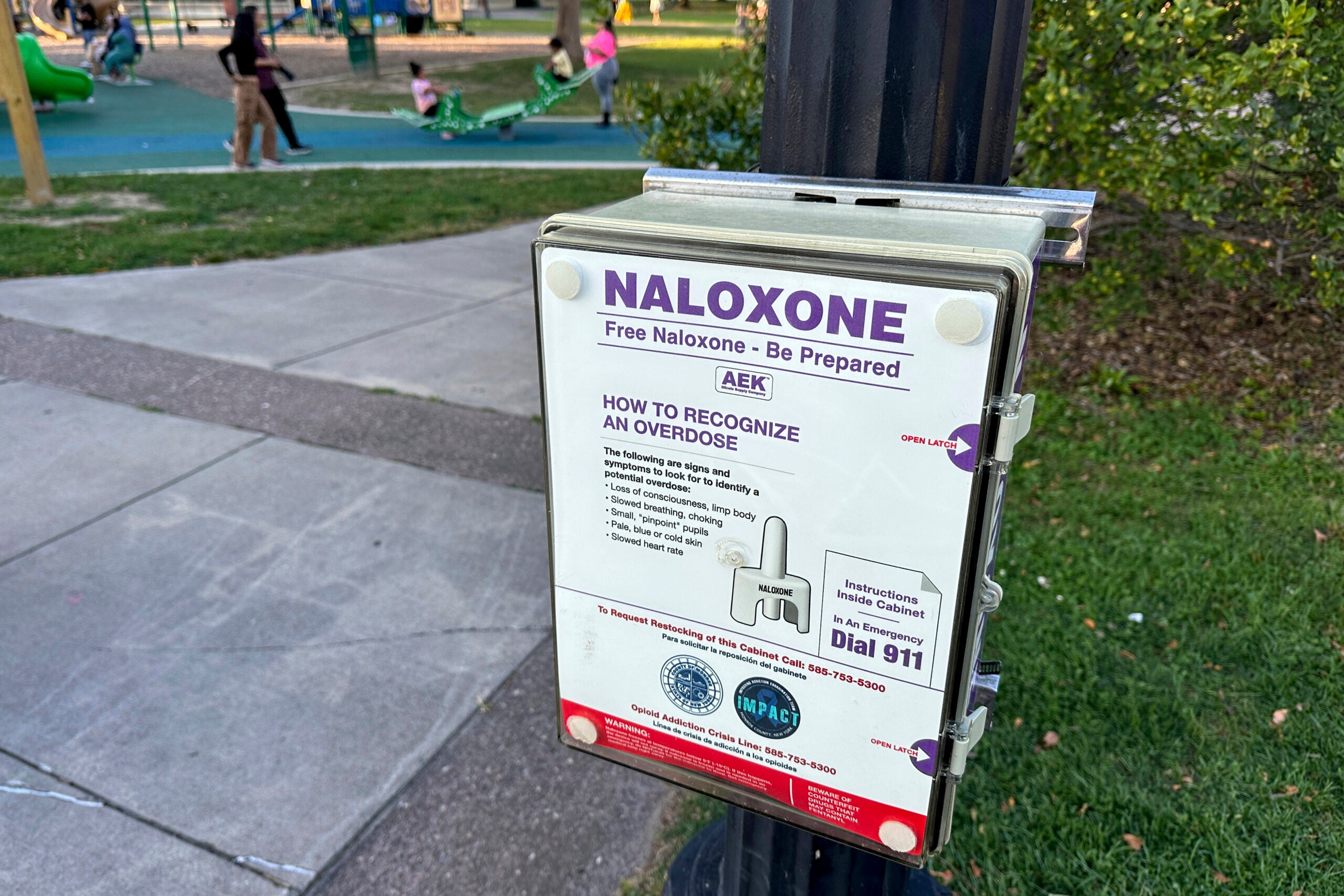A recent study done by the Wisconsin Department of Health Services showed that over 350,000 people in Wisconsin suffer from drug addiction. As a result of the state’s opioid epidemic, the city of Milwaukee is exploring legal action to recover some of the costs of battling the opioid crisis.
The Milwaukee Common Council will consider a resolution next week to have the city attorney investigate litigation possibilities and potentially file lawsuits against drug companies and manufactures who they believe are responsible for damages brought on by the epidemic. Money from the lawsuits would be used to recover the cost of battling the epidemic.
Alderman Michael Murphy, sponsor of the council resolution, said “addiction has been a costly plague for the city.”
News with a little more humanity
WPR’s “Wisconsin Today” newsletter keeps you connected to the state you love without feeling overwhelmed. No paywall. No agenda. No corporate filter.
Murphy said he hopes that any money received from lawsuits can go toward helping those who suffer from addiction.
“Any recovery of damages that we may get would be used toward the prevention, education and services to help people stay off or never get on these very addictive drugs,” Murphy said.
Wisconsin and several other municipalities and counties across the state have already filed similar lawsuits.
“Thousands of governmental entities throughout the United States are filing lawsuits against those companies and distributors engaged in marketing prescription opioids,” Murphy said.
Murphy is also the co-chair of Milwaukee’s City-County Heroin, Opioid and Cocaine Task Force. The task force recommended the resolution be brought to the Common Council.
“We’ve examined the cost to our city services, the impact on people’s health and impact of the bottom line of the tax base as a result of the terrible epidemic of opioid addiction in our community,” Murphy said.
Wisconsin Public Radio, © Copyright 2026, Board of Regents of the University of Wisconsin System and Wisconsin Educational Communications Board.







